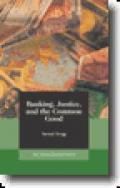


For most musicians, the prospect of a longand stable career in the arts is a lifelong dream. For those who actually “make it,” aspirationscan shift in surprising ways.
For Jars of Clay, a popular rock band who achieved success in the 1990s — and wrote the music for Acton’s film series,For the Life of the World—that vocational reckoning came late in their careers. After 20 years of full-time work in the music industry, they decided that in order to stay creative, they would need to diversify their work.
For Stephen Mason, the band’s lead guitarist, itmeant a transition topart-time work as a barber.
“I fell in love with the experience of the barbershop as a kid,” he says, a seed that grew to fruition in The Handsomizer, his new barbershop in Nashville, which is connected to the side of the Jars of Clay studio.
Filmmaker Nate Clarke captures his journey in a new video from Laity Lodge:
“This is part of what it means to be human,” Mason explains. “We kind of want what we do to matter, both to you and to the world, at some level. You want to extract some sort of meaning out of it, and part of that journey is leaning in with your identity to those things, and then having those things try to pull your identity.”
For many, ing a famous musician may seem like an automatic path to meaning: to “love what you do” has e the American motto for finding meaning through work. Yet as Mason points out, the meaning is already there, whether you’re playing on a stage in front of thousands of people or offering the simple service of a haircut.
As Lester DeKoster explains in his book Work: The Meaning of Your Life, despite all our striving to find work that yields meaning, wherever we work and serve, the meaning already exists:
All of our efforts to endow our lives with meaning are apt e up short and disappointing. Why? Because all our passion to fill the meaning-vacuum through multiplied activity in the home, the church, munity, or whatever stumbles over that big block of every week’s time we have to spend on the seeming meaninglessness of the job. The spare-time charities cannot tip the scales. Redoubling our efforts only obscures the goal.
We are sometimes advised to try giving meaning to our work (instead of finding it there) by thinking of the job in religious terms such as calling or vocation. What seems at first like a helpful perspective, however, deals with work as if from the outside. We find ourselves still trying to endow our own work with meaning. We are trying to find the content in the label, without real success. The meaning we seek has to be in work itself.
The question, then, is not “what makes me happy?” or “what gives me meaning?”As the video concludes, the question is more simply, “Lord, where am I supposed to be?”
Are we asking it?









